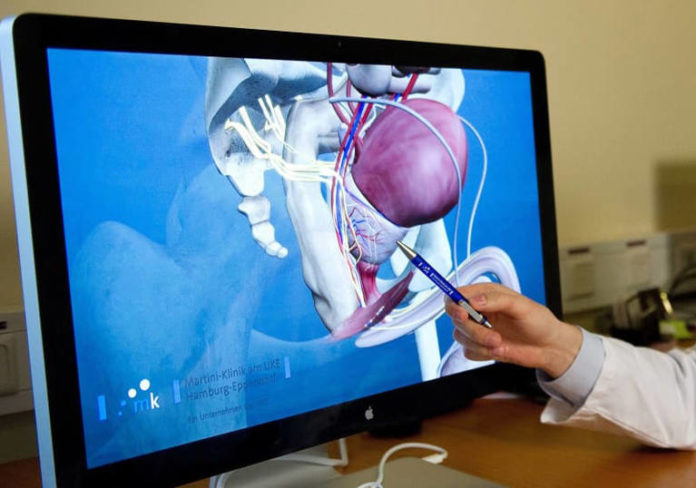Prostate cancer is the most frequent malignancy in men in more than half of the world's countries. It mainly develops in older men, and the risk of getting it increases with age. If detected early though, chances of successful treatment are good, experts say.
Ideally, a prostate tumour is detected early through screening for the disease, for example by palpation of the prostate gland, located just below men's urinary bladder. During the exam, a doctor inserts a gloved, lubricated finger into the rectum and palpates, or feels, the prostate for any hard, lumpy or abnormal areas. Many early cancers are still too small to be felt though, says the German Cancer Society (DKG).
Another screening method is a prostate-specific antigen (PSA) test. PSA is protein produced by cells of the prostate gland, and men with prostate cancer often have an elevated level of PSA in their blood. However, some non-cancerous conditions can also cause a man's PSA level to rise.
Many older men don't have themselves screened for prostate cancer. In a recent representative survey of 1,020 men over age 45 by YouGov, a UK-based global public opinion and data company, a third of them said they hadn't yet been screened. Here are three common reasons why, and why the reasons aren't reasonable.
Reason 1: I don't have any symptoms
This doesn't mean you don't have prostate cancer. There are typically no symptoms in the early stages of a malignant tumour of the prostate gland, the DKG notes.
Symptoms usually don't appear until the tumour is so large that the cancer has metastisized, or spread, to nearby areas such as the urethra, the duct through which urine leaves the body. They include frequent or difficult urination, or having blood in your urine.
Impotence or painful ejaculations can point to prostate cancer as well, as can severe pain in the lower back, pelvic area, hips or thighs.
These symptoms can, however, also be caused by benign prostatic hyperplasia (BPH), a non-cancerous enlargement of the prostate gland common in older men, the DKG says. For clarity, a medical examination is necessary.
Reason 2: I don't like the idea of getting a digital rectal exam
While the procedure isn't particularly pleasant and may make you feel helpless, having your prostate palpated by a doctor is normally painless, the DKG says. It takes just a few minutes, after which you can feel good about having had a perhaps life-saving check-up.
Reason 3: If it's cancer, I don't want to know
No one wants to be diagnosed with cancer or another serious disease. Men are especially fearful, according to psycho-oncologist Dr Carsten Witte. "Men often regard illness as weakness and see prostate cancer in particular as a threat to their masculinity," he remarks.
But the earlier cancer is detected, the greater the chances that it can be cured, and the less aggressively it can be treated, the DKG says. It adds, however, that PSA tests in particular can detect very early-stage cancer that really needn't be treated. Were it not for the screening, the cancer wouldn't have been noticed during the man's lifetime nor caused any symptoms.
So it's important that older men inform themselves thoroughly and weigh the benefits and risks of prostate cancer screening, especially a PSA test. The DKG advises that they consult their GP.

